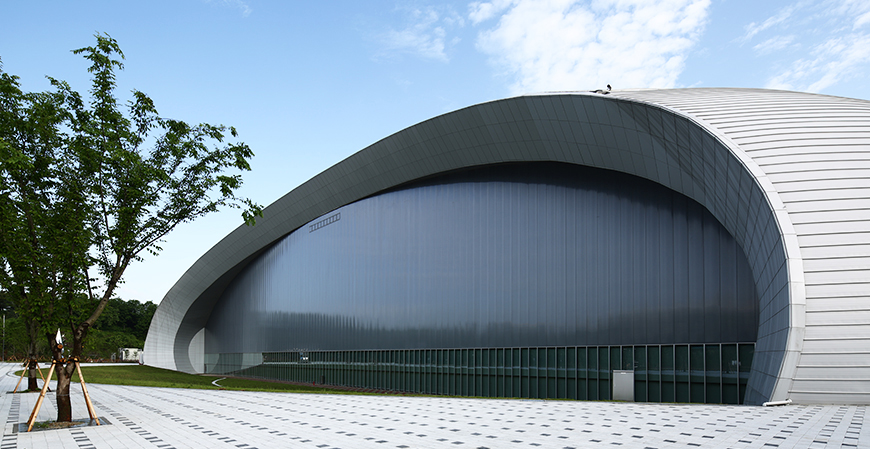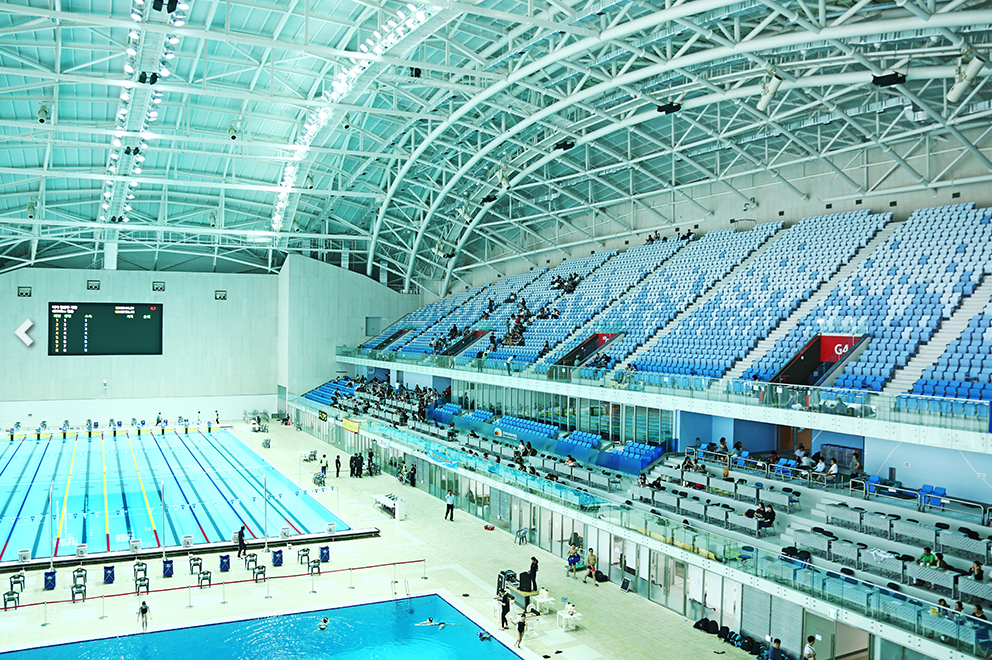On Your Mark, Get Set, and Dive into Gwangju
Written by Cho Namhee
The world’s biggest aquatics sports event will take place this year from July 12 to 28 in Gwangju, and now it is only a few months away. Featuring six aquatic disciplines or sports – swimming, diving, water polo, artistic swimming, open water swimming, and high diving – the FINA World Championships is one of the five major sports events of the world in terms of size and the number of participating countries. Ever since it was first held in Belgrade, Yugoslavia, in 1973, the competition has gotten bigger and better, gathering more athletes from a variety of nations and seeking more cosmopolitan metropolises to become the next host city of this biennial event. While there were a few bumps along the way, in 2013 the city of Gwangju finally won the privilege to host the 18th edition of the FINA World Championships after the host cities of Barcelona, Spain; Kazan, Russia; and Budapest, Hungary.
FINA (Fédération Internationale de Natation), the world governing body for aquatics, is one of the biggest sports federations and claims the second largest number of gold medals among all categories in the Summer Olympic Games (after athletics). Among the dozens of competitions and tournaments held under the auspices of FINA, the World Championships is their flagship event and, at the same time, the competition often serves as a qualification event for the Summer Olympic Games. In other words, with the Summer Olympic Games being just one year away, many of the top finishers at the Gwangju championships (and open water swimmers in Yeosu) will have their spots at the 2020 Tokyo Olympic Games secured more than 365 days before the Games. Though aquatics is not the most endeared sports category in Korea, there are plenty of reasons why it should get our attention.

Speaking of the popularity of this sports category, a majority of the aquatics disciplines in elite competitions is dominated by Western countries (except diving), and the event will therefore garner more TV viewers from Europe and North America. However, in general, it is evident that aquatics is enjoyed and loved by many as a sports category for all. According to Korea’s Ministry of Culture, Sports, and Tourism, the estimated number of swimming athletes in Korea reaches nearly a hundred thousand, and thousands of swimmers participate at local Masters swimming competitions held around the country. One of the benefits of staging the World Championships here is that just a week after this event finishes, the World Masters Championships will be held at the same competition venues over 14 days in both Gwangju and Yeosu. Hundreds of Masters fans from around the world will visit Gwangju and get to compete with other aquatics enthusiasts from different communities. The swimmers from abroad will get to mingle with the local swimmers and experience not only Gwangju but also Korea.
The upcoming FINA World Championships and World Masters Championships will be a great chance to showcase the city of Gwangju. The city had proven its competence through its hosting of the Summer Universiade Games in 2015, and the legacy left behind created another opportunity to step forward as the leading sports city in Korea. But most importantly, great public support is needed for the success of the event, and this support can only come from the avid interest of people like you.
The Author
Cho Namhee, an over-zealous sports fan, is a free spirit who calls Gwangju home. He studies communications at Chonnam National University and works for the 18th FINA World Championships, Gwangju 2019.




